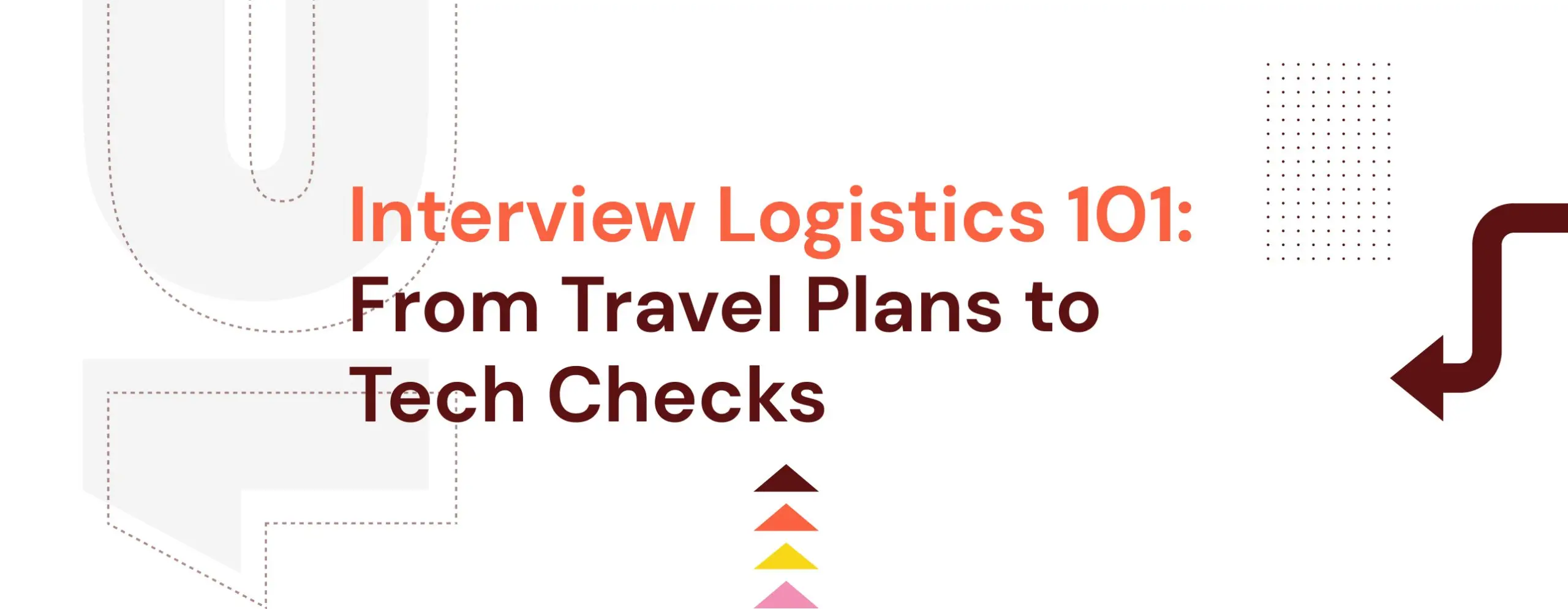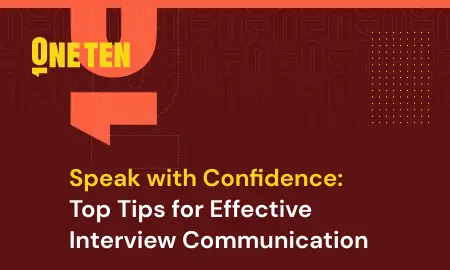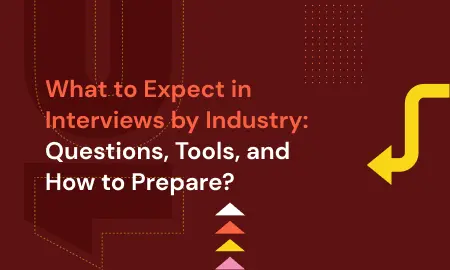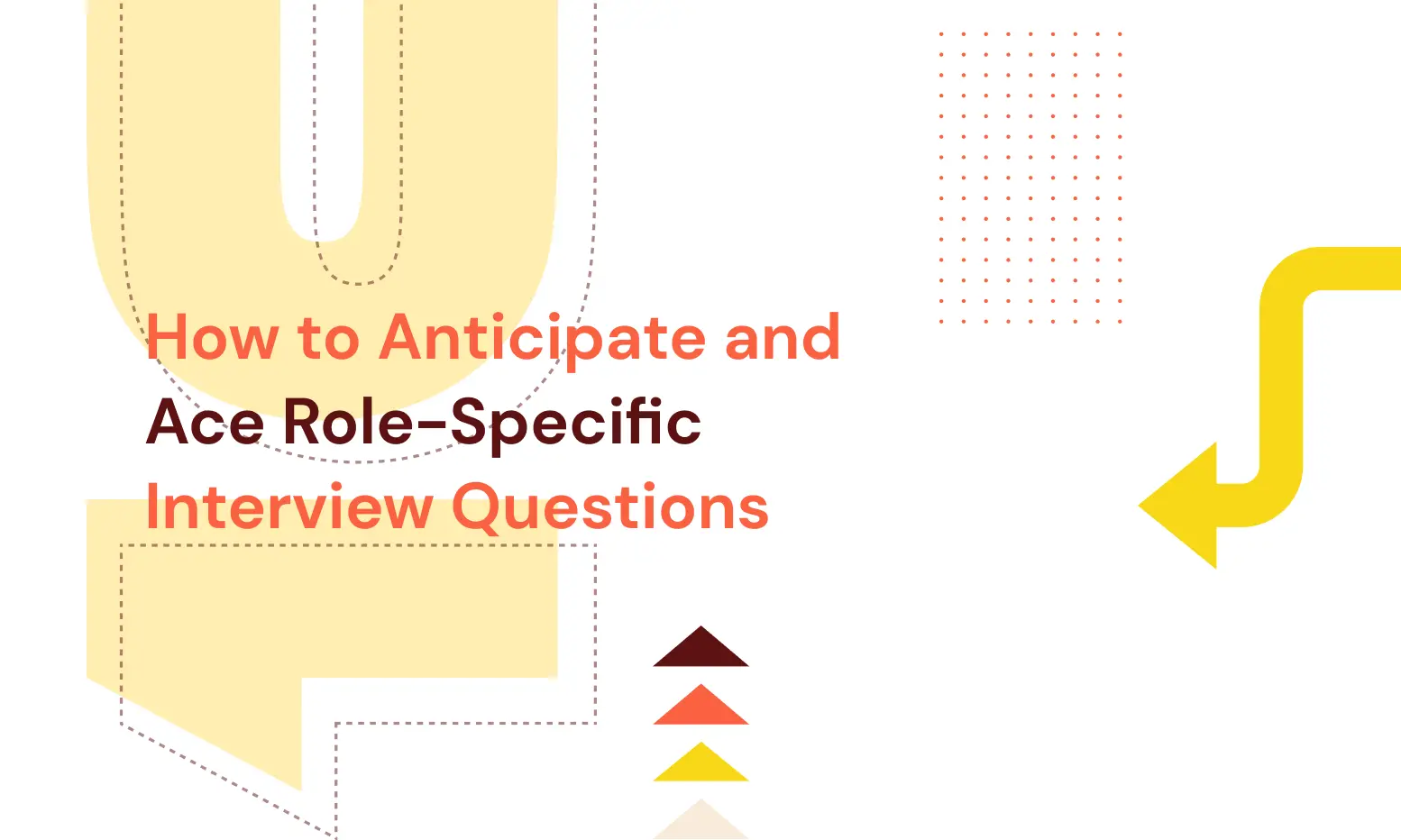Interview Logistics 101: From Travel Plans to Tech Checks

Landing an interview—whether virtual or in person—is a big step forward. But before you showcase your skills, it’s important to get the logistics right. A missed bus, frozen screen, or wrong time zone can derail even the most prepared candidate.
Whether you’re exploring apprenticeships, transitioning into a new field, or working with a
recruiter to support your next move, this checklist will ensure you are ready—and confident.
Start with the Basics
Double-check the essentials: the date, time (and time zone), interview format, and who you’ll be speaking with. Is it a one-on-one, a panel, or part of a multi-step process? Once you know the names, take a moment to look up your interviewers on LinkedIn or learn more about their roles—it can help you feel more prepared and build rapport. And if you’re unsure how to pronounce someone’s name, it’s always better to politely ask than risk getting it wrong.
Plan Ahead Like a Pro
Being prepared ahead of time shows professionalism and respect for your interviewer. Here's how to make sure everything runs smoothly. For in-person interviews: map your route in advance and check for traffic or transit delays, confirm parking info and building entry requirements, and build in buffer time—consider earlier buses, trains, or rideshares.
For virtual interviews: test your internet connection, webcam, and microphone the day before, download or update video apps (Zoom, Teams, Google Meet, etc.), choose a quiet, well-lit space and silence notifications, and sign in 5–10 minutes early to give yourself a buffer. Small details like these make a big difference.
Have What You Need Ready
Even in a virtual interview, preparation matters. It’s not just what you say—it’s how ready you are when the conversation starts. For in-person: bring printed copies of your resume, pack a notepad and pen, bring any required documents or portfolio work, prepare well-thought-out questions to ask the interviewer if there is time, and silence mobile devices.
For virtual: keep your resume open in a separate window, have notes, talking points, or questions for the interviewer nearby (but off-screen), and be ready with your calendar if they ask about availability. This kind of preparation applies across all industries.
Dress the Part
The job might not call for formal attire every day, but showing up polished still makes a strong impression in your interview. Whether you're on a video call or stepping into an office, your outfit helps set the tone. Think of your appearance as a visual resume—especially in roles where first impressions can speak louder than formal education.
Research the Company
Review the company’s mission & About Us page, recent news, and job description. When you understand their goals and culture, you’ll feel more confident and prepared to align your answers accordingly. This level of awareness shows initiative, something employers value.
Get Comfortable with the Questions
Every interview is unique, but you can count on a few common questions:
- “Tell me about yourself.”
- “Why do you want this role?”
- “Describe a challenge you overcame.”
Practice responding in a way that connects your skills and experience to the role. Highlighting strong communication and adaptability can make a big impact, especially when your path to the workforce looks different from the norm.
Plan for the What-Ifs
Life happens. Preparing for the unexpected keeps you cool under pressure:
- Save your interviewer’s (and/or recruiter’s) contact info in case of emergencies
- Have a backup device or mobile hotspot for virtual interviews
- Know alternative routes for in-person meetings
Staying calm and problem-solving under pressure can leave just as strong an impression as your resume—especially in fast-moving industries like tech, logistics, or customer support.
Follow Up and Stand Out
Send a thank-you email within 24 hours. Mention something specific from your conversation and reaffirm your interest. It’s a small gesture that can make a lasting impression.
Final Thoughts
Interviews aren’t just about what you say—they’re about how you show up. Locking in logistics and planning for the unexpected ahead of time gives you the freedom to focus on making a connection.
So check your tech, plan your route, prep your notes, and step into your interview with confidence. Preparation is your best first impression. Your next opportunity might be just one well-planned interview away. You got this!
You Might Be Interested In ...

Speak with Confidence: Top Tips....
Communication can make or break your job interview. Learn how to confidently share your story, highlight your strengths, and connect with interviewers.

What to Expect in Interviews....
Nervous about interviews? Learn what questions to expect by industry and how to prepare with support from OneTen.

How to Anticipate and Ace....
Want to ace your next interview? Learn how to anticipate and prepare for role-specific questions tailored to your industry—so you can impress employers and land the job.